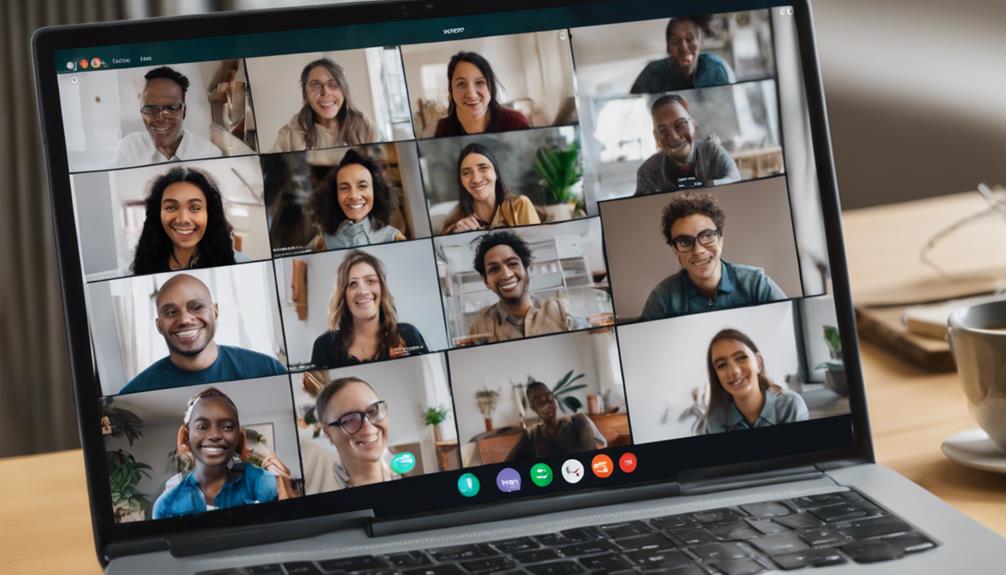As language learners, we've all been there – struggling to express ourselves in English, feeling frustrated with our lack of progress, and wondering what's holding us back. The truth is, mastering English requires more than just attending classes or following language learning apps. It demands a thoughtful approach, one that addresses the intricacies of language acquisition. By adopting a few key strategies, you can bridge the gap between understanding and fluency. But what are these essential tips, and how can you incorporate them into your learning routine to achieve success in English speaking and comprehension?
Set Realistic Goals and Expectations

Setting realistic goals and expectations is a pivotal aspect of an effective English learning and speaking course.
By doing so, learners can create a roadmap for their progress, stay motivated, and avoid frustration. Unrealistic goals often lead to disappointment, which can hinder the learning process.
It is essential to identify achievable objectives, taking into account the learner's current level, available time, and learning style.
Learners should set specific, measurable, and attainable goals, such as improving reading comprehension, enhancing vocabulary, or mastering grammar rules.
Breaking down larger goals into smaller, manageable tasks helps to maintain focus and track progress.
Regularly reviewing and adjusting goals confirms they remain relevant and challenging.
In addition, setting realistic expectations about the time and effort required to achieve these goals is essential.
This helps learners to allocate sufficient time and resources, leading to a more effective and sustainable learning process.
Focus on Pronunciation and Accent
Clarity of communication is the cornerstone of effective English language proficiency, and pronunciation plays a vital role in conveying meaning accurately.
When learners focus on developing good pronunciation skills, they can express themselves more confidently and effectively. A strong accent can often lead to misunderstandings, making it essential to work on pronunciation from the early stages of language learning.
To improve pronunciation, learners should start by listening to native speakers and mimicking their intonation, rhythm, and stress patterns.
They can also record themselves speaking and identify areas that need improvement. It's essential to practice regularly, even if it's just for a few minutes a day, to develop muscle memory and improve articulation.
Additionally, learners can work on specific sounds, word stress, and sentence rhythm to refine their accent.
Practice Active Listening Daily

As learners focus on refining their pronunciation and accent, it's equally important to develop the skill of active listening to complement their speaking abilities.
By doing so, learners can better comprehend native speakers, identify nuances in tone and pitch, and respond more accurately in conversations.
Daily practice of active listening can be incorporated into a learner's routine in various ways.
One effective approach is to listen to English podcasts, audiobooks, or news broadcasts for at least 15-20 minutes each day.
This exposes learners to different speaking styles, accents, and vocabulary, allowing them to improve their listening comprehension.
Another strategy is to watch English videos or TV shows with subtitles, pausing frequently to repeat what the speakers say and practice their pronunciation.
It's also essential to engage in conversations with native speakers, either in person or online, to apply active listening skills in real-life situations.
Immerse Yourself in English Language
Surrounded by the English language, learners can accelerate their language acquisition by creating an immersive environment that fosters consistent exposure and interaction.
This can be achieved by incorporating English into daily routines, such as watching English TV shows or movies with subtitles, listening to English podcasts or audiobooks, and reading English books or articles.
Additionally, learners can label objects and places in their homes with English labels, creating a visual association between words and objects.
Moreover, setting their phone or computer to English can also contribute to a more immersive environment.
By surrounding themselves with the language, learners can develop a deeper understanding of English vocabulary, grammar, and pronunciation.
Immersion also helps learners to get used to the natural flow and rhythm of the language, making it easier to speak and communicate effectively.
Learn From Native Speakers Online

The digital age has ushered in a plethora of opportunities for language learners to connect with native English speakers online, providing an unparalleled chance to refine their language skills.
This can be achieved through online language exchange platforms, social media, and video conferencing tools. Interacting with native speakers enables learners to immerse themselves in authentic language use, fostering a deeper understanding of cultural nuances, idioms, and colloquialisms.
Moreover, native speakers can provide valuable feedback on pronunciation, intonation, and grammar, helping learners to identify and rectify areas of improvement.
Online language exchange platforms, such as italki and Conversation Exchange, offer a convenient and accessible way to connect with native speakers. Additionally, social media platforms, like Facebook and Twitter, can be utilized to engage with native speakers and join online language learning communities.
Use Flashcards for Vocabulary Boost
Beyond conversing with native speakers, another effective way to enhance English language skills is through the strategic use of flashcards, which can substantially boost vocabulary acquisition.
By creating physical or digital flashcards, learners can review and memorize new words, phrases, and expressions efficiently. This approach enables learners to focus on specific areas of vocabulary, such as idioms, phrasal verbs, or business English, and track their progress.
To maximize the effectiveness of flashcards, learners should create cards with a word or phrase on one side and its definition, translation, or explanation on the other. They can then quiz themselves by covering the answer side and attempting to recall the information.
Flashcards can be used anywhere, at any time, making them an ideal tool for learners with busy schedules. Additionally, learners can create digital flashcards using apps or online platforms, which often offer features such as spaced repetition and gamification to enhance engagement and motivation.
Overcome Fear of Speaking Out

Having a robust vocabulary is only half the battle; the real challenge lies in putting it into practice through spoken communication.
Many English learners struggle with speaking out due to fear of making mistakes, being judged, or embarrassed. This fear can be debilitating, causing learners to shy away from opportunities to practice speaking. However, it is crucial to overcome this fear to improve speaking skills.
To overcome fear of speaking out, start by practicing speaking with yourself. Record yourself speaking on various topics, and listen to the recordings to identify areas for improvement.
Gradually move on to speaking with a language partner, tutor, or friend who can provide constructive feedback. Join online language exchange communities or conversation clubs to interact with native speakers and build confidence.
Frequently Asked Questions
Can I Learn English on My Own Without a Tutor or Teacher?
While it's possible to learn English independently, having a tutor or teacher can provide personalized feedback, correct pronunciation, and accelerate progress. However, with dedication and the right resources, self-study can still be an effective way to improve English skills.
How Long Does It Take to Become Fluent in English?
The timeframe to achieve fluency in English depends on various factors, including language learning ability, consistent practice, and immersion. With dedication, it can take around 1-3 years to reach an intermediate level and 5-7 years to attain advanced fluency.
Are There Any Free Online Resources for English Learning?
When seeking free online resources for English learning, numerous options are available, including language exchange websites, YouTube channels, and mobile apps like Duolingo, which provide interactive lessons and exercises to enhance language skills.
What's the Best Way to Remember New Vocabulary Words?
To effectively remember new vocabulary words, create flashcards with definitions, use mnemonic devices to associate words with memories, and practice active recall through quizzes, games, or writing exercises to reinforce learning and solidify retention.
Can I Learn English if I Have a Low IQ or Learning Disability?
Individuals with low IQ or learning disabilities can still learn English, albeit at their own pace. Adaptive learning strategies, assistive technology, and personalized instruction can facilitate language acquisition, regardless of cognitive abilities.
Conclusion
In summary, incorporating the seven essential tips into an English learning routine is vital for achieving success. By setting realistic goals, focusing on pronunciation and accent, practicing active listening, immersing oneself in the language, learning from native speakers online, using flashcards, and overcoming fear of speaking, learners can substantially improve reading comprehension, vocabulary, and grammar. This strategic approach enables learners to express themselves confidently with clarity and precision, ultimately leading to mastery of the English language.




0 Comments